Acute myeloid leukaemia (AML)
Acute myeloid leukaemia (AML) is a fast-growing type of blood cancer that usually needs urgent treatment.
This section is about AML in adults. We have separate information about AML in children.

What is AML?
Over 2,900 people are diagnosed with AML each year in the UK. When you have AML, certain types of blood cells don’t work properly. Faulty blood cells build up in the body and stop your blood and immune system from functioning normally.
AML explained

AML causes
AML happens when something goes wrong in the DNA inside blood cells. We don’t know exactly why this happens. There are some things that make a person slightly more likely to get AML – these are called risk factors.
AML causes and risk factors

AML prognosis
Everyone's prognosis is individual to them, but things that can affect prognosis include your age, your general fitness, the specific type of AML you have, and any genetic mutations in the AML cells.
Prognosis
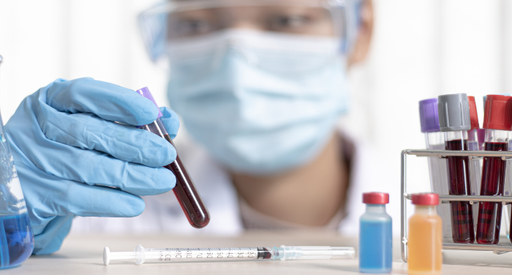
AML symptoms and tests
Common symptoms of AML include tiredness, breathlessness, unusual bruising and bleeding, infections, fever and weight loss. If your doctor suspects you have AML, they will run a series of tests.
Symptoms and tests
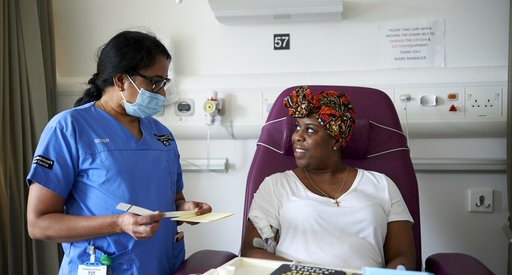
Treatment for AML
The treatment your doctor recommends will depend on the type of AML you have and your general health. Read more about the different options, possible side effects and how your doctor will monitor your response to treatment.
AML treatment
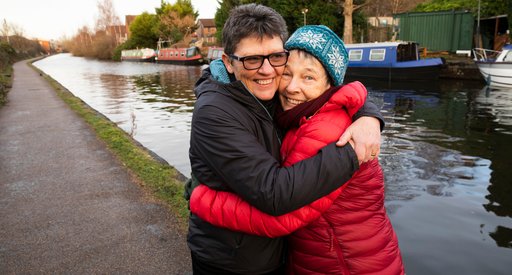
Practical support
An AML diagnosis can have a big impact on you and the people close to you. There is lots of support available for you and your loved ones, including support with work, money, childcare and help at home.
Get support
"It was like I was watching a movie and this was all happening to someone else."
Marie, diagnosed with AML in 2016.
Read Marie's story about Coping with a sudden diagnosis of AML.
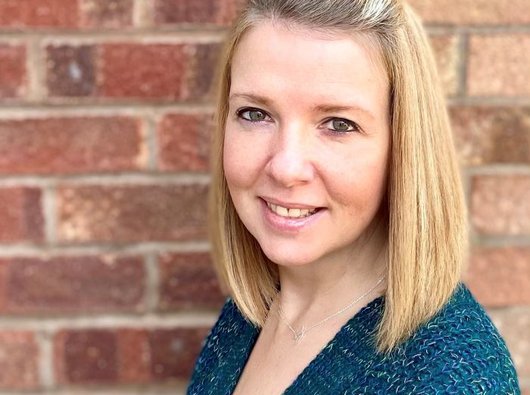
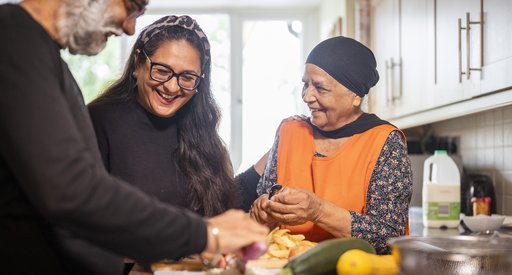
Life after AML
Finishing AML treatment is a big achievement, but it can take time to recover. Read about how you might feel and things that can help.
Find out more
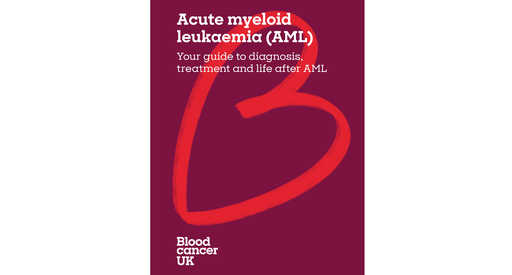
Get your free guide to AML
People who've had AML helped us create this booklet. It's your guide to diagnosis, treatment and life after AML, with tips and advice from people who've been there.
Order your free copy
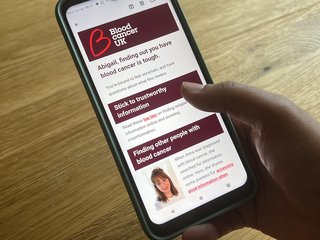
Get a weekly support email from us
We'll send you clear and simple information, practical tips, and advice from other people with blood cancer, to help during the first few weeks and months after diagnosis.
Thank you to Advanced Nurse Practitioner Kirsty Crozier, Consultant Haematologists Richard Dillon and Professor Steve Knapper, and Clinical Fellows Francesca Hogan and Victoria Ware for checking the medical content of our AML information.
